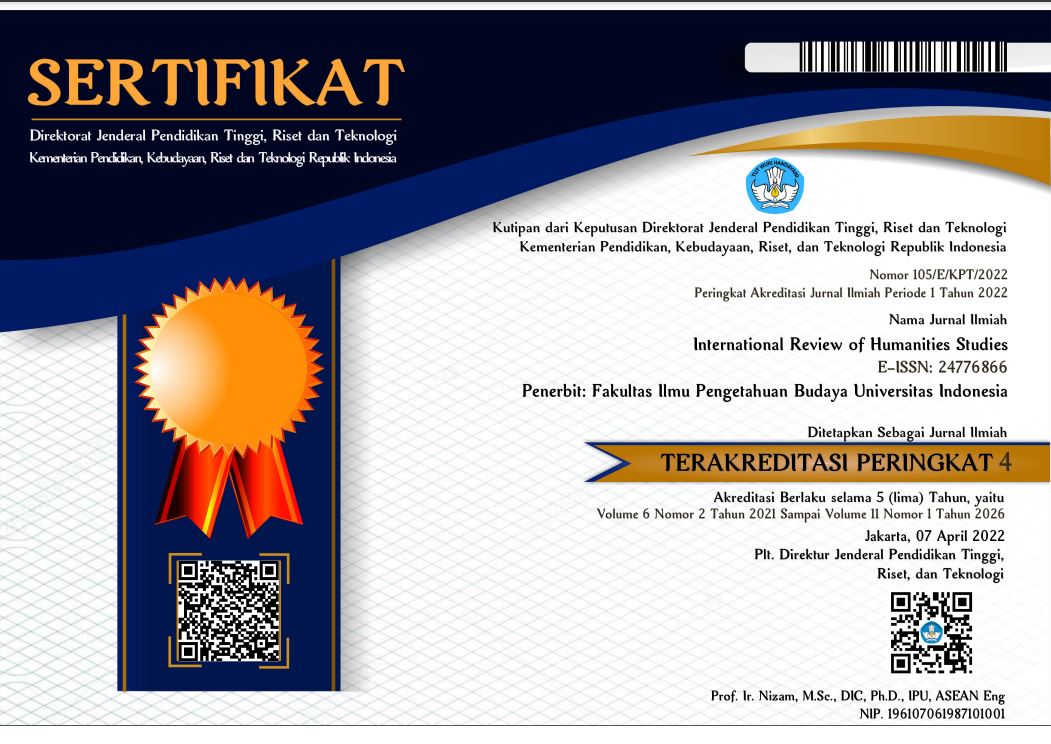International Review of Humanities Studies

Abstract
In the culture of any group of people, language, as a potent means of communication, cannot be relegated to the background. Every good play reflects the people for whom it is written. Esiaba Irobi’s Cemetery Road is not an exception. This essay, therefore, considers the employment of language as one of the major tools of revolt in Esiaba Irobi’s Cemetery Road in the dramatist’s attempt to restructure and build a new egalitarian society. The essence of this study is to reveal how Esiaba Irobi, has been able to deploy language as a revolutionary weapon in his play, Cemetery Road. The study, thus, showcases the ideological concern of the playwright in the play. The play is ideological because it takes a radical position on the issue of change in certain aspects of the Nigerian society. This essay, therefore, seeks to unveil the different aspects of language used in Cemetery Road. An examination of the text reveals that the dramatist employs macabre language or language of violence, persuasive language, wit, mockery and sarcasm, proverbial language, imagery, language of abuse and insensitivity, and language of despair.
Recommended Citation
Inegbe, Stephen E. and Bassey, Rebecca
(2020)
"THE POLEMICS OF LANGUAGE IN ESIABA IROBI’S CEMETERY ROAD,"
International Review of Humanities Studies: Vol. 5:
No.
2, Article 5.
Available at:
https://scholarhub.ui.ac.id/irhs/vol5/iss2/5
Included in
Life Sciences Commons, Social and Behavioral Sciences Commons, Theatre and Performance Studies Commons


